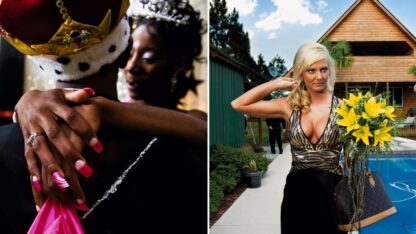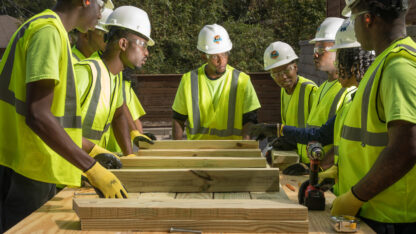Hosea Helps thousands of Atlanta residents in time for the holiday season
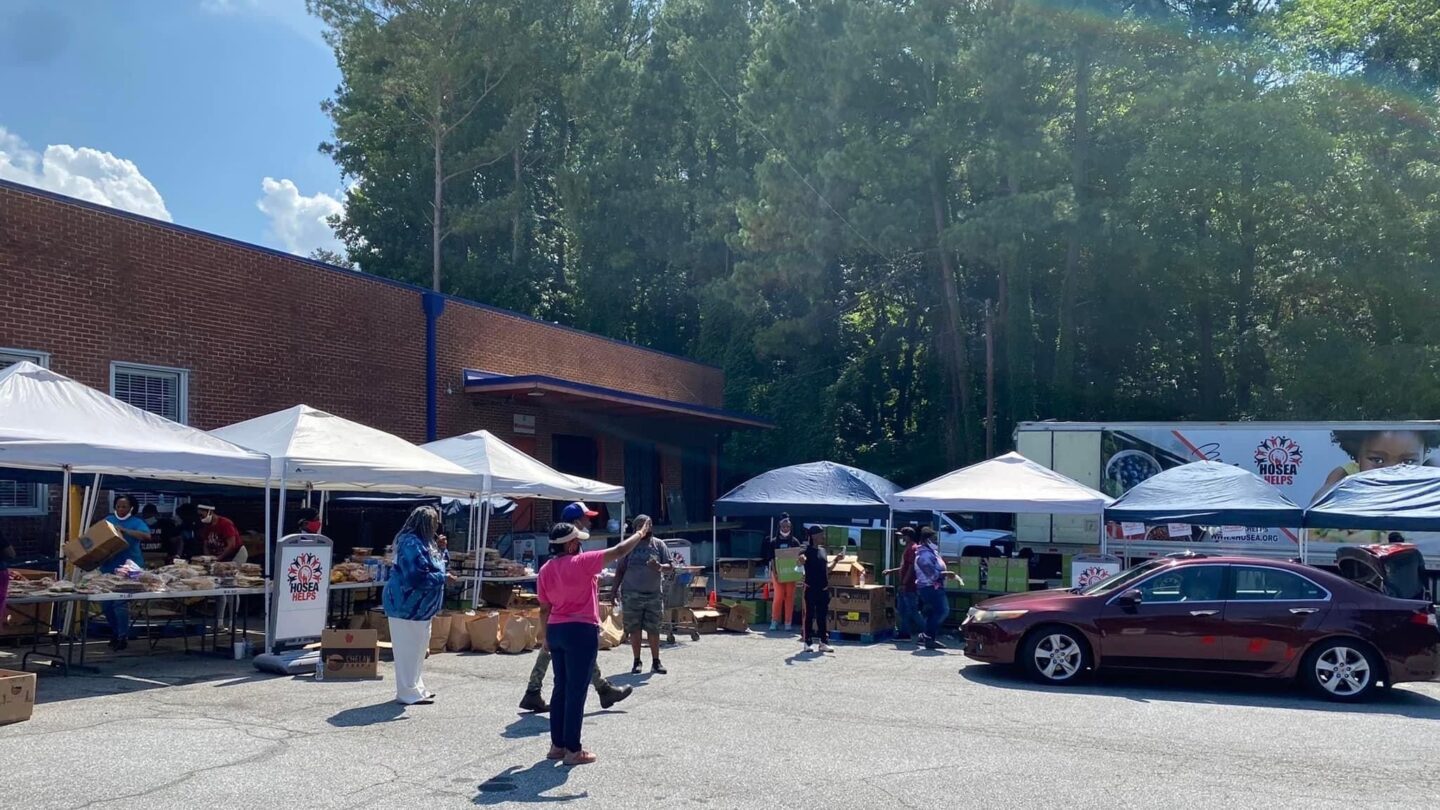
Lifelong Atlanta resident and renowned human rights activist Elisabeth Omilami knows firsthand that the value of a person’s heart does not lie within their pockets.
As CEO of Hosea Helps, she comes across thousands of citizens throughout the state who have experienced professional and personal setbacks that have impacted their standards of living but have kept their high spirits intact.
“They are so caring and so kind, and loving,” Omilami said. “I always say, ‘Do you want to sit around with a bunch of haughty people who are wearing Gucci and judging each other, or do you want to be around people who are just their living life and leaning on each other.'”
The nonprofit organization, founded by famed civil rights activist and Omilami’s father Hosea Williams in 1971, has grown to become one of Atlanta’s most respected, reputable and well-known nonprofits, serving over 50,000 people annually through meals, clothing and social services.
Hosea’s upcoming event, a Thanksgiving Drive-thru being held Saturday, Nov. 19 in College Park, is only one of the many contributions the organization has made in over 50 years of giving back to the metro Atlanta community.
The foundation originated in 1970 after Williams experienced a chance encounter with a homeless man while walking down Auburn Avenue, one of Atlanta’s wealthiest black neighborhoods at the time.
“Hosea Williams saw the man eating out of a trashcan, he said that he hadn’t eaten in three days,” Omilami said. “[Williams] took the man over to a nearby market and bought him a fish sandwich; he was so hungry that he ate through the paper and the wrapping just to get to the sandwich. People don’t believe that there’s that type of hunger here in America, but there is.”
Throughout three decades, the organization — then known as Hosea Feeds the Hungry —specialized primarily in providing meals and relief for Atlanta residents throughout the holiday season, roughly two or three months out of the year.
However, after the passing of Williams in November 2000, Omilami and her husband, theater and television actor Afemo Omilami, took over the organization and soon realized that many of the problems facing their clients were far from being resolved after the end of the holidays.
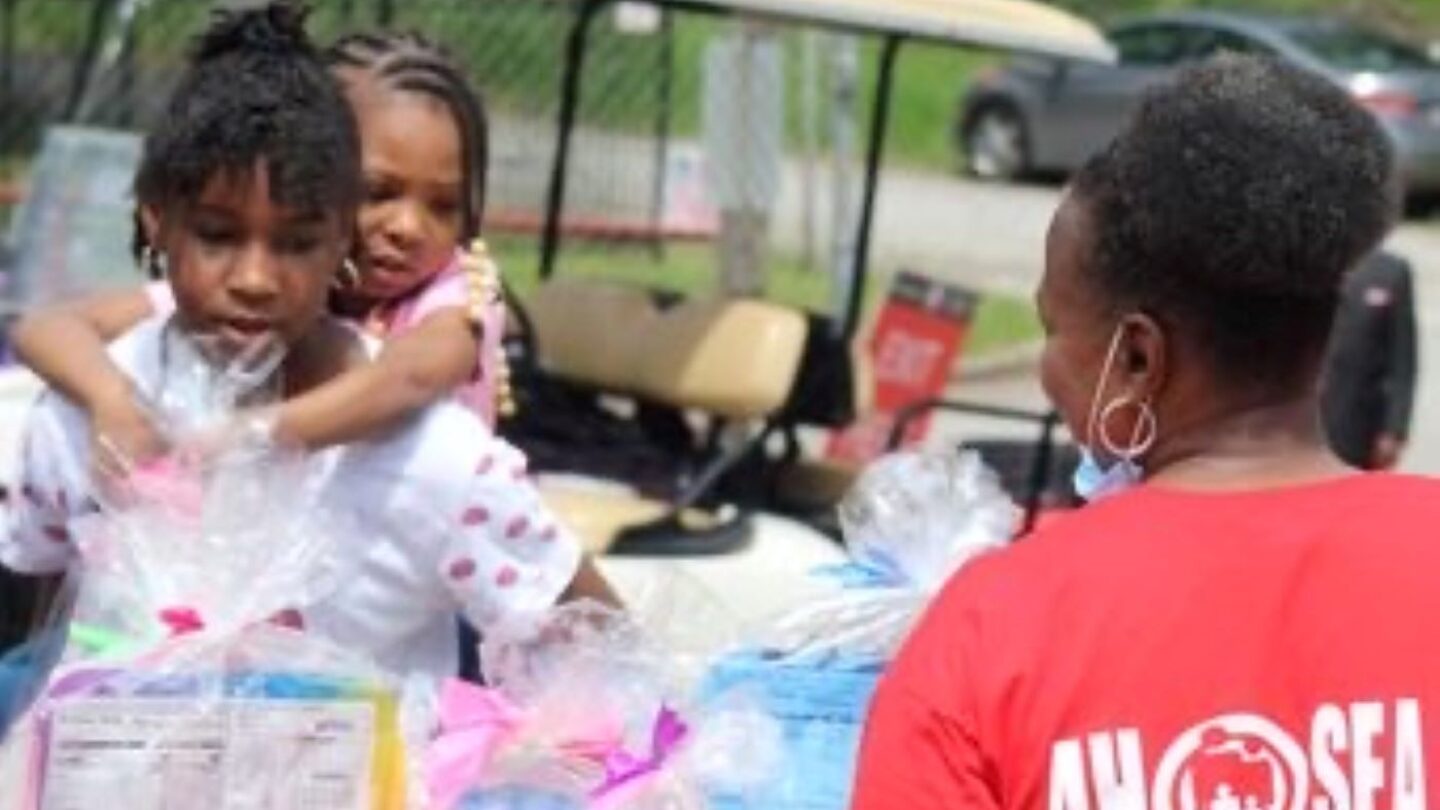
“The food is just the way to get the families in, but once you get past that, you realize, for many of them, that they need clothing, they need to see a lawyer because they cannot find work because of their record, or a doctor because they do not have health insurance,” she said.
With those needs in mind, the organization continued to grow in reflecting the needs of their community, transforming into a year-round organization that not only provides meals but also rent assistance, transportation, health resources, career resources and childcare, among other resources.
The organization has also formed “Hosea on the Move,” a mobile service to help families and communities unable to reach their headquarters.
“We made it our mission to make it to their church, their schools. Our staff will pull up and be prepared to feed 1,000 families,” said Omilami. “It’s grown exponentially because of our faith in God and the importance of the work that we do.”
However, the increase in services has not decreased the organization’s share of challenges.
“People are getting evicted, people have nowhere to go … we are constantly getting those calls every single day.”
Almelia Chapman, Case Manager – Hosea Helps
One of them has been finding new volunteers and donors to help provide needed support for the nonprofit’s growing clientele, a concern that Omilami attributes to society’s negative and misinformed view of those who are less fortunate.
“These are working families; these are not lazy people … these are not people who are drug abusers or who don’t want to do better,” said Omilami. “You have families who are working two or three jobs and still are not able to keep up with the rent, which continues to go sky high.”
She also believes that many residents make the mistake of equating homelessness with those they may only see sleeping outside or on public transportation when the actual number of those in need is far greater.
“I think that we need to qualify the term ‘homeless,’ because it’s not just the guy standing out on the corner asking for money,” said Omilami. “We get calls from women living in hotels living with their children, many families have bumped up and our living together to survive … but the government only counts those that are sleeping outside.”
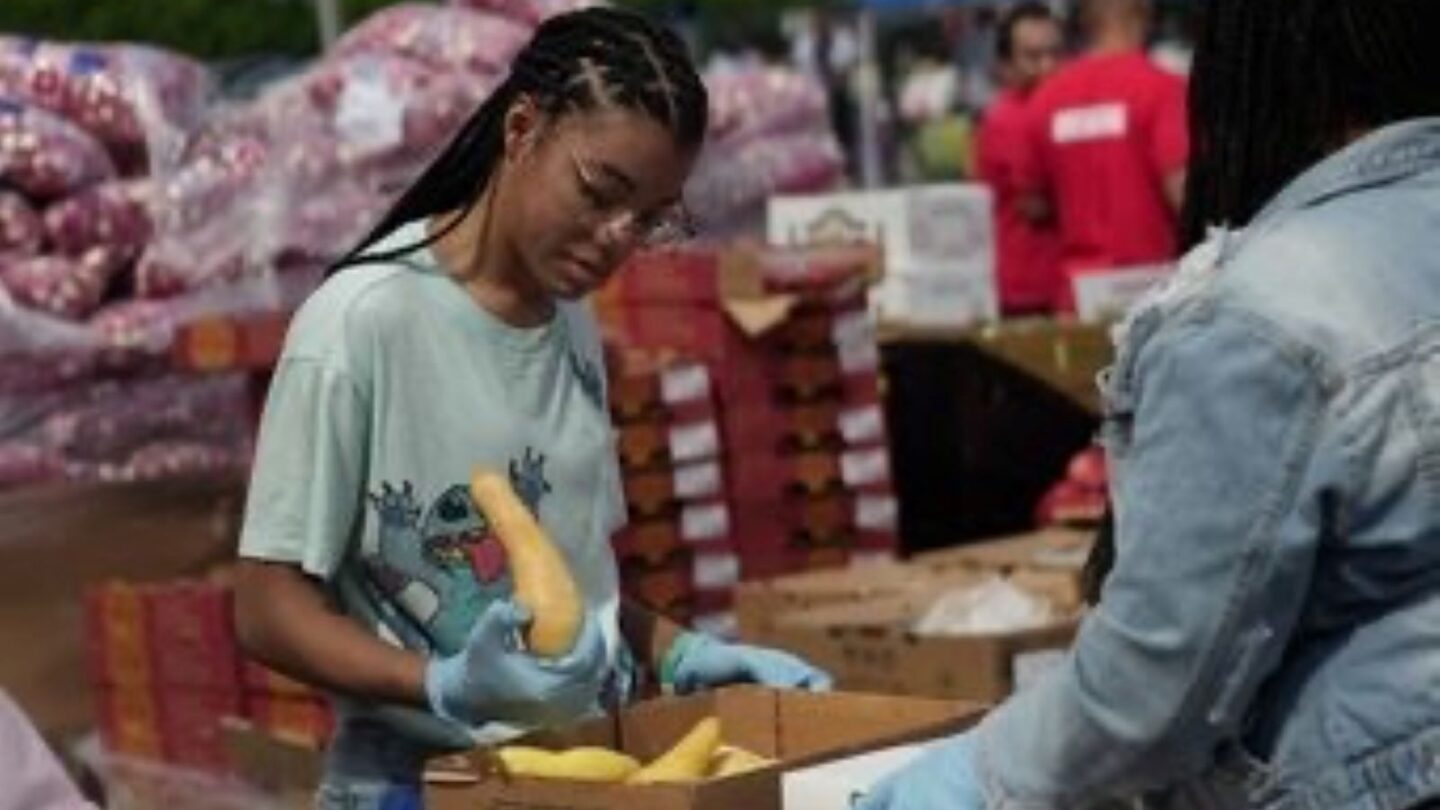
During a recent phone interview, the nonprofit’s case manager Almelia Chapman was en route to pick up a single mother of two young children, who reached out to the organization the night before, unable to maintain stable housing or income.
“She’s living inside of a church shelter, where every morning she has to leave with her babies and be out on the street with no transportation or anything,” said Chapman. “People are getting evicted, people have nowhere to go, specifically a lot of single mothers with very young kids … we are constantly getting those calls every single day, and not one but several,” she said.
Another issue Omilami has endured since her reign as CEO has been the lack of recognition and financial support that African American-based organizations such as hers receive from the local government.
She notes that the organization itself was homeless for three years, in between being displaced from their West End home of 19 years after property tax increases and finding their current home in Southwest Atlanta in 2021.
“It’s grown exponentially because of our faith in God and the importance of the work that we do.”
Elisabeth Omilami, CEO – Hosea Helps
“The white organizations, quite frankly, get the majority of the funds for the work that we do. Whereas African American charities receive less than 5% of the philanthropy dollars, and now we are challenged more than ever when the needs are greater than ever,” Omilami said.
The organization has gained allies this holiday season in local government officials such as Dekalb County Commissioner Lorraine Cochran-Johnson, who commissioned Hosea to distribute 3,000 food boxes throughout her district, and thanks to U.S. Rep. Nikema Williams of Atlanta, the organization received $2.2 million to expand warehouse space and distribution of food. Additional plans to develop programs centering upon mental health resources and youth empowerment are also in progress.
“She reached out to us and other organizations that not many may have heard of,” Omilami said. “We’re going to able to be able to serve 40% more people, we’re going to be able to have classes and training for certified nursing and training, and use it for earning income. These are things politicians need to be doing for those they serve.”
Omilami and Chapman hope that the Nov. 19 event, followed by several other holiday events including the organization’s 51st Annual Thanksgiving Dinner and upcoming children’s Christmas party, will encourage a new generation of Atlanta residents to step up and serve their communities.
“Some people just need a little bit of help to turn their lives around, and you can be that help. You’re going to have to sacrifice some time from yourself, and even if you don’t want to get out of the house … there’s always something that you can do, somebody who needs you,” she said. “There are a lot of misconceptions and questions about those who are struggling with food and income … but when you’re busy helping others, you find out the real answers.”
